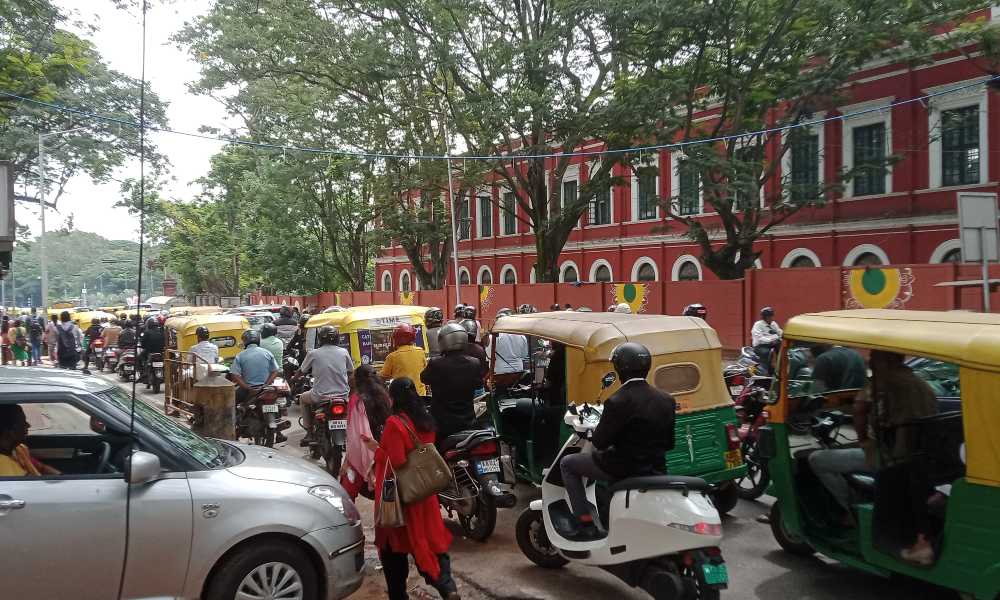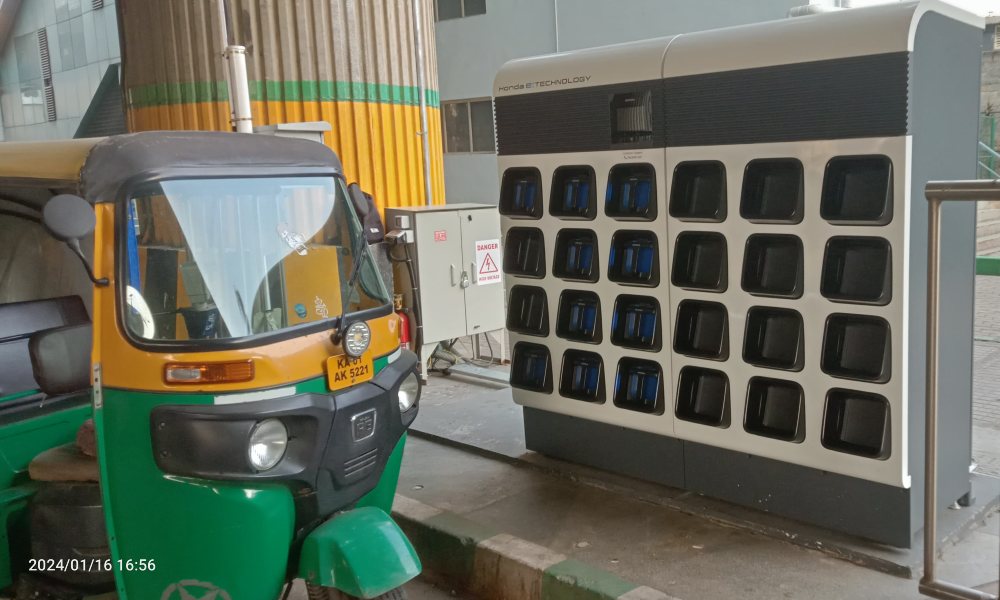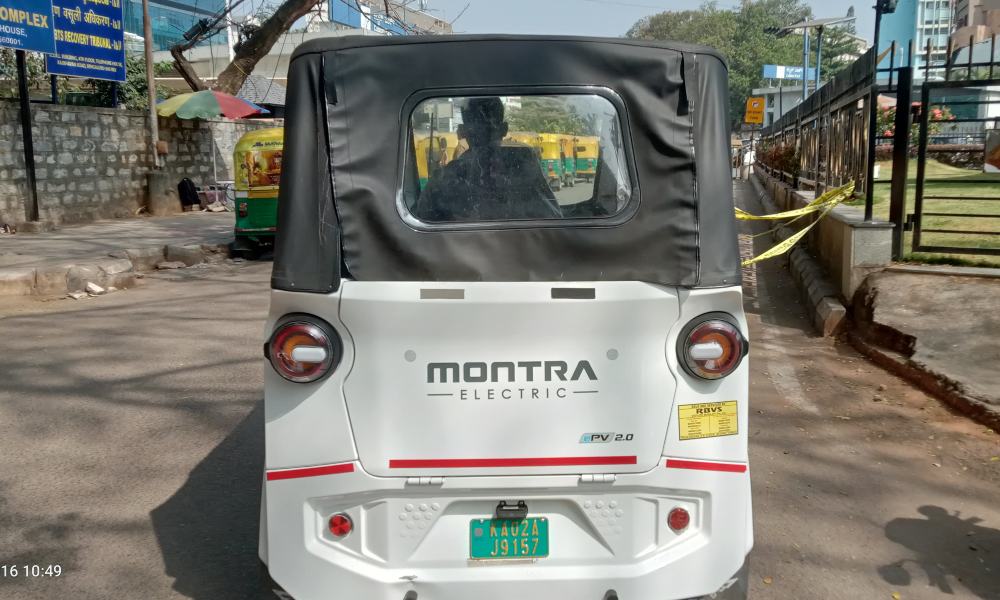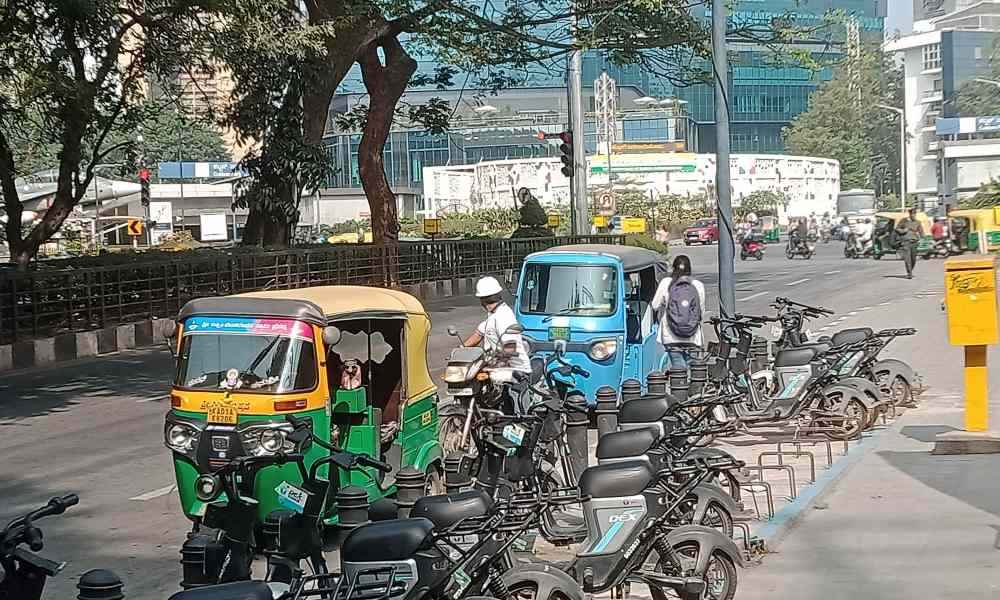Despite being a popular mode of commute in the city, auto unions say only a few autos have switched to the electric.
Unaffordable prices, inadequate Electric Vehicle (EV) charging points, and cost ineffectiveness are some of the reasons why auto drivers do not want to upgrade their vehicles to zero-emission ones. While some say government subsidies and incentives could motivate auto drivers into buying e-autos, others don’t realize the need for EVs.
Aslam Pasha, an auto driver said, “We find e-autos quite expensive, be they a one- time purchase or in installments. The cost of an e-auto is around Rs. 3 lakh to Rs. 3.2 lakh; when paid for in installments the cost can go up to as much as 4.5 lakh. Both are not affordable for us.” He added that he recently exchanged his old auto for a new one, both Compressed Natural Gas (CNG) autos. He said that the new auto, after the exchange offer, cost him only Rs. 1.2 lakh. The price of a CNG auto in Bangalore is around Rs. 2.3 lakh.
Mahesh, another auto driver said that he does not consider switching to an e-auto because charging the auto consumes a lot of time. Adding to it, the e-autos’ battery is untenable and the charge runs out very quickly, he said. “Charging points are very few in the city and most of the time crowded. Our livelihood depends on how many trips we can make. We cannot afford to waste so much time on charging the auto,” he added. “But more importantly, an e-auto is beyond my purchasing power, and e-autos also have less resale value,” he said.
Aslam said, “If the auto runs out of charge at a point where EV charging points are unavailable, we are helpless.” He added that they would need to tow the auto to the nearest charging point, which means an additional expense.
However Nawaz, an auto driver who recently bought an e-auto said he is satisfied with the money he earns from plying the auto. “Charging the auto costs me Rs.60 per time, and the auto runs for long with one full charge. The cost of repair and maintenance is less to negligible,” he said. “But I wish more charging stations were available, as I often have to wait in line behind other private vehicles at the charging stations and lose out on a few trips.”
Another e-auto driver said that he had not received any subsidy from the government on the purchase of his auto. He further said that he switched to an e-auto because his CNG one was not operating properly and would frequently break down. “I somehow collected the funds for an e-auto because I wanted to save on gas price. Some form of government aid could have really helped me, and also many others who want to buy e-autos. He also said that he is actually thankful there aren’t many e-autos running in the city, as it would add to the already thick crowd at the charging stations.
According to a January 2023 article by the Bangalore Political Action Committee (B.Pac) with reference to data from the Karnataka Transport department, in FY 2021-22, only 0.6 percent of auto-rickshaws were e-autos, which is only 150 autos. The number of two-wheelers running on electric was the highest at 23,096.
Karnataka became the first state in the country to have its own EV Policy with the introduction of the Karnataka Electric Vehicles and Energy Storage Policy (KEVESP) in 2017. As per the policy, the Government of Karnataka targets 100 percent EV adoption by 2030 in the private transport segment in Bengaluru. Although the number of electric buses has increased, the number of e-autos lags behind.
According to a study by Center for Study of Science, Technology and Policy (CSTEP), a Bangalore-based think tank, a total of 75,788 EVs were registered in the city in 2021. According to data on EV Jagruthi, a portal launched by the government of Karnataka in 2022 to promote the use of growth and EV in the state, there are currently around 300 EV charging stations in the city.
C Sampath, general secretary of Adarsh Auto Drivers’ Union said that out of the roughly 1.5 lakh public transport autos operating in the city, only 1,500 to 1,600 are e-autos. “Auto drivers do not switch to e-autos mainly due to their high cost price and less resale value. Additionally, they do not receive any incentives or subsidies from the government which could motivate them. Many of them are also uneducated on the functioning and benefits of e-autos.” He added that inadequate EV charging stations could also be a deterrent.
He further said that currently the central government gives a subsidy of Rs. 60,000 on the manufacture of EVs. “If the state government comes up with some incentive or subsidy on the purchase of EVs, it could encourage the middle income group, like the auto drivers to switch to EVs.”
Arjun Vasudevan, head of Net Zero at Breathe ESG, an Environmental, Social and Governance (ESG) management platform in Bangalore, said that the city’s infrastructure must be reformed to encourage the phasing out of least eco-friendly modes of transport. He said that the growth in the number of EVs in the city must match the growth in the number of charging points.
Regarding e-autos, he said, “In addition to government subsidies, demand related incentives must be in place. Discount at purchase should be offered but also profit sustainment should be ensured. For e,g., auto services like Namma Yatri, Ola or Uber Auto could come up with reward plans wherein e-autos will earn more per trip or booking.” He added that with the exponential growth of private vehicles hence air pollutants in the city, zero tailpipe emission vehicles or EVs are a wise choice which both private and government parties should come together to opt for.








